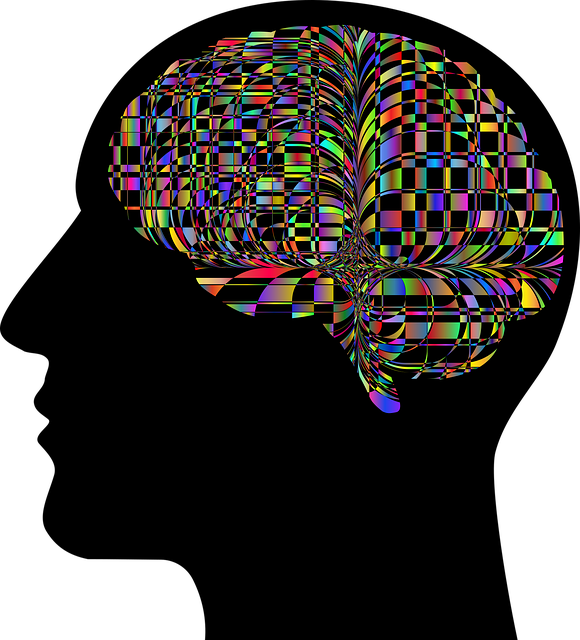Depression among adults is a common mental health challenge marked by persistent sadness and impaired daily functioning. Effective therapy for adults depression involves group facilitation, creating supportive environments where participants share experiences, learn coping strategies, build resilience, and gain confidence. This collaborative approach emphasizes active listening, empathy, stress reduction techniques, and fostering connection to enhance therapeutic journeys. Key elements include clear boundaries, confidentiality, non-judgmental attitudes, and peer support, aiming to destigmatize depression and improve access to care.
Mental wellness group facilitation offers a powerful approach to supporting individuals struggling with adult depression. This article delves into essential techniques for group leaders, focusing on understanding the symptoms and challenges of depression in adults. We explore how group facilitation provides a safe space for healing, emphasizing effective communication strategies and connection-building tactics. By employing these techniques, mental health professionals can enhance therapy outcomes for those seeking support for adult depression.
- Understanding Adult Depression: Symptoms and Challenges
- The Role of Group Facilitation in Mental Health Support
- Creating a Safe and Inclusive Environment for Participants
- Effective Communication Strategies for Group Leaders
- Techniques to Foster Connection, Engagement, and Healing
Understanding Adult Depression: Symptoms and Challenges

Depression among adults is a prevalent mental health challenge that requires careful understanding and effective therapeutic approaches. Recognizing the symptoms is a crucial step in facilitating support groups for this demographic. Common indicators include persistent feelings of sadness, loss of interest or pleasure in activities once enjoyed, changes in appetite and sleep patterns, fatigue, difficulty concentrating, and recurrent thoughts of death or suicide. These symptoms can significantly impact daily functioning and overall quality of life.
Adult depression often presents unique challenges, such as societal expectations and a desire to maintain control. Many adults struggle with the perception that they should be able to handle their emotions independently. Facilitators play a vital role in creating a safe space where participants can openly discuss their experiences, challenge these beliefs, and learn coping strategies for mood management. Through interactive discussions, group members can enhance their understanding of depression, build resilience, and discover confidence-boosting techniques tailored to their needs.
The Role of Group Facilitation in Mental Health Support

Group facilitation plays a pivotal role in enhancing mental health support, especially when tailored to adults dealing with depression. This collaborative approach allows individuals to come together and share experiences, fostering a sense of community and mutual understanding. Facilitators act as guides, creating a safe and non-judgmental environment where members can express their thoughts and feelings openly. Through interactive activities and discussions, participants learn valuable coping strategies for managing symptoms of depression and anxiety, such as stress management techniques and positive thinking exercises.
In the context of therapy for adults with depression, group facilitation offers unique benefits beyond individual therapy sessions. It encourages social interaction and connection, which are essential for recovery. By engaging in group activities, members can build resilience, enhance their support networks, and develop effective risk management planning. This collaborative setting also promotes a sense of accountability and encouragement among participants, empowering them to take charge of their mental wellness journey.
Creating a Safe and Inclusive Environment for Participants

Creating a safe and inclusive environment is paramount when facilitating mental wellness groups. This involves fostering an atmosphere where each participant feels valued, respected, and understood. As a group facilitator, it’s crucial to set clear boundaries, ensure confidentiality, and encourage active participation while maintaining a non-judgmental stance. By creating a welcoming space, individuals struggling with depression can openly share their experiences without fear of stigma or rejection.
This process involves promoting emotional intelligence, encouraging self-care routine development for better mental health, and fostering peer support. It’s about building a community where folks feel empowered to navigate their mental wellness journeys together. This inclusive approach not only enhances the therapeutic effect of group therapy for adults with depression but also empowers participants to develop coping strategies that resonate within their unique contexts.
Effective Communication Strategies for Group Leaders

Effective communication is a cornerstone for successful group facilitation, especially when addressing mental wellness. Group leaders play a vital role in creating an inclusive and supportive environment where every individual feels heard and valued. One key strategy involves active listening, where facilitators show genuine interest by paraphrasing participants’ concerns, asking open-ended questions, and maintaining eye contact. This technique not only fosters trust but also encourages individuals to explore their thoughts and emotions more deeply.
Additionally, empathy building strategies are essential tools for group leaders. By putting themselves in their clients’ shoes, facilitators can offer tailored support, especially when dealing with complex issues like depression. Incorporating stress reduction methods, such as guided meditations or mindfulness exercises, can also aid participants in managing their mental health. These practices demonstrate a holistic approach to therapy for adults with depression, aligning with broader Mental Health Policy Analysis and Advocacy efforts to destigmatize and improve access to care.
Techniques to Foster Connection, Engagement, and Healing

Fostering connection, engagement, and healing within a mental wellness group is an art that can significantly impact participants’ therapeutic journeys. Group facilitators play a pivotal role in creating a safe and supportive environment where individuals feel seen, heard, and understood. One powerful technique is encouraging active participation through open discussions, allowing members to share their experiences and insights. This not only promotes positive thinking but also creates a sense of community, reducing feelings of isolation often associated with depression.
Additionally, incorporating interactive activities and exercises can boost engagement. Facilitators might use creative methods like art therapy or guided meditations to help individuals express themselves and manage stress. These strategies not only enhance the therapeutic experience but also serve as valuable tools in burnout prevention for both clients and mental health professionals. Moreover, effective risk management planning is essential; facilitators should be prepared to navigate potential challenges while ensuring everyone’s safety and well-being, ultimately fostering a healing atmosphere.
Mental wellness group facilitation plays a pivotal role in therapy for adults depression, offering a supportive environment for participants to connect, engage, and heal. By employing techniques that foster safety, inclusion, and effective communication, group leaders can significantly impact positive outcomes. Understanding the unique challenges of adult depression while implementing these facilitative strategies enables deeper levels of support, ultimately revolutionizing mental health care.









